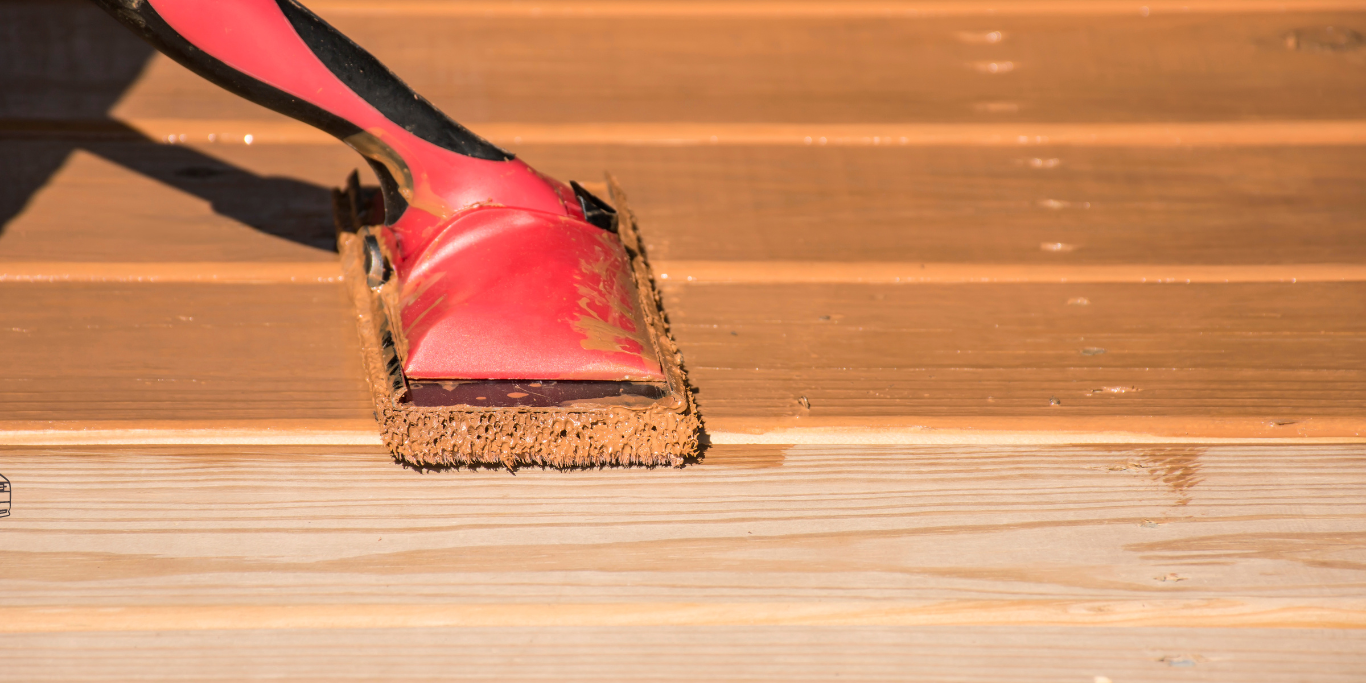Deck staining is a crucial step in maintaining the longevity and aesthetic appeal of your outdoor living space. Choosing between oil-based and water-based deck stains can significantly impact the outcome of your staining project. Understanding the differences between these two types of stains is essential for achieving the desired results and ensuring the durability of your deck. In this comprehensive guide, we’ll delve into the distinctions between oil-based and water-based deck stains, providing valuable insights to help you make an informed decision for your deck maintenance needs.
The primary difference between oil-based and water-based deck stains lies in their composition, application, durability, and environmental impact. While oil-based stains offer superior penetration and durability, water-based stains are easier to clean up and have lower volatile organic compound (VOC) levels. Ultimately, the choice between the two depends on factors such as the type of wood, climate conditions, personal preference, and environmental considerations.
Composition and Application
Composition
Oil-based deck stains are formulated with natural or synthetic oils, such as linseed oil or alkyd resin, which penetrate deep into the wood fibers, providing long-lasting protection against moisture and UV damage. In contrast, water-based stains contain water as the primary solvent, along with acrylic or latex resins, which form a protective film on the surface of the wood.
Application
Oil-based stains require thorough mixing and careful application to ensure even coverage and penetration into the wood. They typically take longer to dry, requiring adequate curing time before exposure to foot traffic or adverse weather conditions. On the other hand, water-based stains are easier to apply, as they have a thinner consistency and dry faster, allowing for multiple coats in a single day.
Durability
Oil-based stains are renowned for their durability and resistance to wear and tear, making them ideal for high-traffic areas and harsh weather conditions. However, they may darken or amber over time, requiring periodic maintenance and recoating. Water-based stains offer excellent UV resistance and color retention, but they may not penetrate as deeply as oil-based stains, leading to reduced longevity and protection.
Environmental Impact
VOC Emissions
Oil-based stains often contain higher levels of volatile organic compounds (VOCs), which can contribute to air pollution and pose health risks to humans and the environment. In contrast, water-based stains have lower VOC emissions, making them a more environmentally friendly option. Choosing water-based stains helps reduce your carbon footprint and minimizes exposure to harmful chemicals.
Cleanup and Disposal
One of the advantages of water-based stains is their easy cleanup with soap and water, eliminating the need for harsh solvents or thinners. Additionally, water-based stains are non-flammable and can be disposed of safely, reducing the risk of environmental contamination. Oil-based stains, on the other hand, require mineral spirits or paint thinner for cleanup, which can be messy and hazardous if not handled properly.
Long-Term Impact
When considering the long-term impact of deck staining on the environment, water-based stains are the preferred choice due to their lower toxicity and eco-friendly properties. By opting for water-based stains, you contribute to sustainable practices and minimize harm to ecosystems, water sources, and wildlife habitats.
Performance and Maintenance
Color and Finish
Oil-based stains often provide richer, deeper colors and a natural matte or satin finish that enhances the beauty of the wood grain. Water-based stains offer a wider range of color options and a clear, transparent finish that highlights the natural characteristics of the wood. Depending on your aesthetic preferences and design goals, you can choose the appropriate stain to achieve the desired look for your deck.
Maintenance Requirements
Proper maintenance is essential for prolonging the life of your stained deck and preserving its appearance. While oil-based stains may require more frequent maintenance, such as cleaning, sanding, and recoating, water-based stains offer easier upkeep and touch-ups. Regular inspection and maintenance routines help prevent moisture damage, mold growth, and wood decay, ensuring the longevity and structural integrity of your deck.
Weather Resistance
Both oil-based and water-based stains provide varying degrees of weather resistance, depending on their formulation and application. Oil-based stains are known for their exceptional water repellency and resistance to cracking, peeling, and blistering in extreme weather conditions. Water-based stains offer excellent UV protection and flexibility, making them suitable for regions with intense sunlight exposure and temperature fluctuations.
Choosing the Right Stain for Your Deck
Considerations for Wood Type
The type of wood used for your deck influences the choice between oil-based and water-based stains. Hardwoods, such as cedar, redwood, and mahogany, benefit from the deep penetration and nourishment provided by oil-based stains. Softwoods, such as pine and spruce, may require the superior protection and flexibility offered by water-based stains.
Climate and Environmental Factors
Climate conditions, such as humidity, temperature extremes, and precipitation levels, play a significant role in determining the performance and longevity of deck stains. In humid environments, water-based stains may be prone to mildew growth and moisture retention, whereas oil-based stains offer better resistance to moisture penetration and fungal decay. Consider local weather patterns and environmental factors when selecting the appropriate stain for your deck.
Personal Preference and Budget
Ultimately, your personal preference and budget constraints will influence your decision when choosing between oil-based and water-based deck stains. While oil-based stains may have higher upfront costs and require more extensive preparation and application, they offer long-term durability and protection. Water-based stains are more budget-friendly and easier to work with, making them a popular choice for DIY enthusiasts and homeowners on a tight budget.
Professional Deck Staining Services in Allen, TX
At MJ Workforce Solutions, we specialize in professional deck staining and sealing services for homeowners in Allen, TX, and surrounding areas. Our team of experienced painters uses premium-quality stains and sealants to enhance the beauty and durability of your outdoor living space. Whether you prefer oil-based or water-based stains, we have the expertise and resources to deliver exceptional results that exceed your expectations. Contact us today for a free consultation and transform your deck into a stunning oasis of relaxation and entertainment.
FAQs:
Q1. What are the advantages of oil-based deck stains over water-based stains?
Oil-based deck stains offer several advantages, including superior penetration into the wood fibers, long-lasting protection against moisture and UV damage, and rich, deep colors that enhance the natural beauty of the wood grain. Additionally, oil-based stains are known for their exceptional durability and resistance to wear and tear, making them ideal for high-traffic areas and harsh weather conditions.
Q2. Are water-based deck stains as durable as oil-based stains?
While water-based deck stains may not offer the same level of durability as oil-based stains, they still provide excellent protection against UV damage and moisture intrusion. Water-based stains are known for their quick drying time, ease of application, and low odor, making them a popular choice for DIY projects and environmentally conscious homeowners. With proper maintenance and recoating, water-based stains can maintain their appearance and performance for several years.
Q3. How do I know which type of deck stain is best for my climate?
Choosing the right deck stain for your climate depends on factors such as humidity levels, temperature extremes, precipitation rates, and sunlight exposure. In humid environments with frequent rainfall, oil-based stains may offer better resistance to moisture penetration and fungal growth. In dry, arid climates with intense sunlight, water-based stains may provide superior UV protection and color retention. Consider consulting with a local paint professional or contractor to determine the most suitable stain for your specific climate conditions and environmental factors.
Conclusion:
Choosing between oil-based and water-based deck stains requires careful consideration. Here at MJ Workforce Solutions, we understand the importance of selecting the right stain for your deck. Our experienced professionals can help you weigh the factors of composition, application, durability, environmental impact, and maintenance to ensure you make an informed decision. We’re committed to enhancing the beauty and longevity of your deck, so contact MJ Workforce Solutions today for a free consultation!







